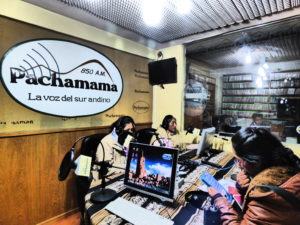Kellie Cavagnaro: Announcing a New Digital Humanities-Enhanced Course for Undergraduates!
Anthropologist Kellie Cavagnaro is a Mellon Graduate Fellow in Digital Humanities and a Fellow in Vanderbilt’s Comparative Media Analysis and Practice (CMAP) joint-PhD program. Building on her Digital Humanities and CMAP experiences, she will offer a new undergraduate course this Spring, that will integrate a series of curricular and instructional designs that connect students with on-campus media experts, and structure class time to include hands-on digital project lab hours as matriculates learn basic skills in audio recording and mixing, photo composition, and digital video editing to produce multimedia essays that critically engage and respond to course readings.

This Spring 2018, sign up for A DH-Enhanced Introduction to Cultural Anthropology with Instructor Kellie Cavagnaro.
Class meets Mondays and Wednesdays, 11:30-12:45 @ Vanderbilt Center for Digital Humanities
What does it mean to take undergraduate coursework from a Digital Humanities perspective?
Digital Humanities describes a set of methodological approaches to humanistic and social science inquiry that incorporate various media and technology and apply these to solving social or cultural questions. From my perspective as an anthropologist, I am designing this course in a way that will connect students with on-campus media experts, and structure their class time to include hands-on digital project lab hours.
There are many working definitions of anthropology as both an academic discipline and a social scientific practice. It is true to say that Anthropology is the study of human diversity throughout history, and in the present. There are generally four facets of anthropological study and they include a focus on material histories (archaeology) biological realities (physical anthropology) and multimodal forms of human communication (linguistic anthropology). Cultural anthropology, which this course will explore in depth, is the study of how people structure and understand their lives and the world around them. It is also true to say that anthropology, as a practice, is the endeavor to make the world safer for human diversity in all its forms.

As the expanding global communications of the 21st century bring unprecedented groups of people—from various relative power positionings— into contact with one another, considering our dynamic relationships with digital technology becomes part of that practice. In my course, students will learn basic skills in audio recording and mixing, photo composition, and digital video editing to produce multimedia essays that critically engage and respond to course readings. Indeed, in the emergent model of Digital Humanities courses, the term ‘readings’ shall no longer suffice; syllabi are expanded to include listenings and viewings in addition to texts. In A DH Introduction to Cultural Anthropology, we will immerse ourselves in perspectival podcasts and eco-cultural documentaries alongside our reading of classic, textual ethnographies. We will give consideration to the relationship between the medium and the message as we practice producing multimodal essays that consider broader questions of race, gender, power, identity and the state.
To better engage with digital humanities methodologies, our classes will not be centered around lectures, but will instead follow a project-based learning format that utilizes the concept of the flipped classroom. Students will independently engage their readings, viewings and listenings before the class assigned, and be briefly evaluated on their course material comprehension each week at the beginning of class. In this way, I am able to see that students fully grasp the material, so that we can use much of our instruction time on hands-on projects that apply the course concepts in digital, and at times collaborative, projects that stem from the course objectives:
- First, that students build a dynamic understanding of culture, the way it shapes individual lives, and how it is considered by cultural anthropologists.
- Second, that they develop an understanding of key anthropological concepts concerning culture, knowledge, race, class, gender, the state, and social movements.
- Third, students will trace relationships between identities and systems of power.
- Fourth, they will practice ethnographic observation;
- Lastly, students will practice critical thinking, multimodal writing skills, and the production of multimedia compositions for targeted audiences.
We will be working with University-leased software such as Adobe Photoshop, Premiere Pro and Logic Pro 10 during skill building sessions. However, freeware versions will be introduced (GIMP, Paint.net, Audacity, etc.) for use in audio editing and sound mixing when matriculates cannot access campus machines. During lab work days, software-equipped MacBooks and desktops will be available for student use, or matriculates may bring their own machines. The class will be hosted at Vanderbilt’s Center for the Digital Humanities, Buttrick 344. See you there!
For more on the flipped classroom in higher education, and how these teaching methodologies are being considered at Vanderbilt, see this online guide from our Center for Teaching https://cft.vanderbilt.edu/guides-sub-pages/flipping-the-classroom/